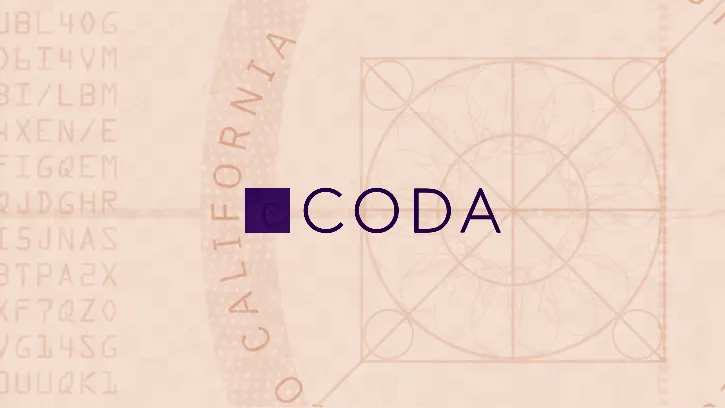In Brief
- Coda Protocol's blockchain is lightweight and uses 22-kilobyte blocks rather than 1-megabyte blocks of Bitcoin.
- That makes it cheaper and faster to use—and more democratic, with miners all over the world, the company says.
- The second cohort of its Genesis Program, in which 1,000 miners will be selected to seed the blockchain, launches today.
Evan Shapiro, CEO of O(1) Labs thinks that Bitcoin is a stolen revolution—in his view, miners in China control 65% of the bitcoin hash rate. From a geographical, let alone a Web3 perspective, that’s not exactly decentralized.
His solution? Shapiro and his San Francisco-based startup launched a Coda Protocol testnet a year ago—its entire 'lightweight blockchain' is a scant 22-kilobytes long. By comparison, each block of the Bitcoin chain is one megabyte. Since larger block sizes require more expensive, power-consuming hardware to mine, Coda Protocol’s blockchain is cheaper, faster, more sustainable—and more democratic to mine, the company maintains.
A geographically diverse pool of miners
In fact, thus far, some 3500 people from 180 countries have signed up to participate in its “Genesis Program” aimed at creating a diverse pool of stakers, the second cohort of which was announced today, said Shapiro. Of that group, 1,000 will be selected to receive a distribution of 66,000 tokens as founding members of Genesis.
“The Genesis token program is designed to ensure high decentralization upon mainnet launch by preparing founding members to become block producers,” Shapiro told Decrypt. “Given our core value of openness, and our desire to allow people to participate through their labor, encouraging high participation from our global community is a priority.”
The mainnet is expected to launch in Q4 of this year.
A blockchain small enough to run on a phone
(O)1 Labs designed Coda Protocol to be lightweight enough to run on mobile devices. It claims to have developed the world’s “lightest blockchain, encapsulating the entire history of its blockchain in a single zero-knowledge proof about 22 kilobytes, or the size of a few tweets.”
There must be a Snark in here somewhere
Shapiro said that instead of “heavy” proof of work mechanisms, Coda relies on “recursive zk-SNARKs,” an adaptation of the zero-knowledge proof concept. “Nodes can rapidly share and update proof of the correct blockchain state across the network,” he said.
In essence, each time a Coda Protocol node produces a new block, it also generates a SNARK proof verifying that the block was valid. “You only need to look at that small proof to know that the blockchain’s current state is correct,” Shapiro said. “This proof is much easier to download than an entire chain of transactions, so the pool of eligible validating nodes for Coda is much more inclusive, which is better for decentralization and usability.”
By comparison, Shapiro said, “Bitcoin and Ethereum are data-heavy blockchains that are difficult to download, and therefore limit the pool of eligible nodes that can participate in validating transactions. The hefty resource requirements for nodes is antithetical to the idea of decentralization that welcomes anyone to participate in consensus.”
(O)1 Labs was founded in 2017 by Shapiro and Izaak Meckler, and has raised some $18 million after two rounds of funding. Its investors include Polychain Capital, Collaborative Fund, Kindred Ventures, Nima Capital, and Blockchange.

